Most people have a drawer, cabinet, or medicine box filled with old pills, bottles with faded labels, and forgotten prescriptions. You find an ibuprofen tablet from last year, or maybe your EpiPen expired six months ago. Should you take it? Is it dangerous? Or is it just a waste of money to replace it?
The short answer: expired medications aren’t always dangerous, but they’re not always safe either. It depends on what kind of medicine it is, how it’s been stored, and why you need it.
What Does an Expiration Date Actually Mean?
That date on your pill bottle isn’t a "use-by" date like milk. It’s the last day the manufacturer guarantees the drug will work as intended and remain safe under proper storage conditions. The U.S. Food and Drug Administration (FDA) requires all prescription and over-the-counter drugs to have expiration dates based on stability testing. These tests measure how the medicine holds up over time under heat, light, and humidity.
Here’s the catch: expiration dates are conservative. Studies - including those from the FDA’s own Shelf Life Extension Program - show that many medications, especially solid tablets and capsules, remain chemically stable for years beyond their labeled date. One study found 90% of tested drugs retained potency up to 15 years past expiration when stored correctly.
But here’s the other catch: that data comes from military stockpiles stored in climate-controlled warehouses. Your bathroom cabinet? Not the same.
Which Medications Are Riskier After They Expire?
Not all drugs degrade the same way. Some lose potency slowly. Others turn into something harmful.
Life-saving medications should never be used past their expiration date:
- Epinephrine (EpiPen): Loses 20-30% potency within six months of expiration. In a severe allergic reaction, even a small drop in effectiveness could mean the difference between life and death.
- Insulin: After expiration, it can clump or become cloudy. Using degraded insulin leads to unpredictable blood sugar levels - dangerous for diabetics.
- Nitroglycerin: Used for chest pain. It breaks down quickly, especially if the bottle is opened. Even before expiration, it can lose half its strength in three months if not stored properly.
- Antibiotics (like amoxicillin or tetracycline): Expired antibiotics may not kill bacteria fully, which can lead to treatment failure and antibiotic resistance. Tetracycline is especially risky - it can break down into compounds that damage your kidneys.
- Thyroid meds (levothyroxine) and blood thinners (warfarin): These require precise dosing. Even 10% less potency can cause serious health issues.
If you’re using any of these for a chronic condition, replace them on time. Don’t gamble with your health.
What About Pain Relievers and Allergy Pills?
For things like acetaminophen, ibuprofen, or loratadine (Claritin), the risk is much lower. Studies show these solid tablets often retain 90% of their potency for 5+ years after expiration - if stored in a cool, dry place.
Many people take expired painkillers for a headache or sore throat. The FDA acknowledges this reality. While they officially say "don’t use expired meds," they also admit that for minor issues, using a pill that expired a few months ago is unlikely to cause harm.
But here’s what they won’t say out loud: if your headache doesn’t go away after taking an expired pill, you might think the medicine didn’t work - and end up taking more. That’s how overdose risks creep in.
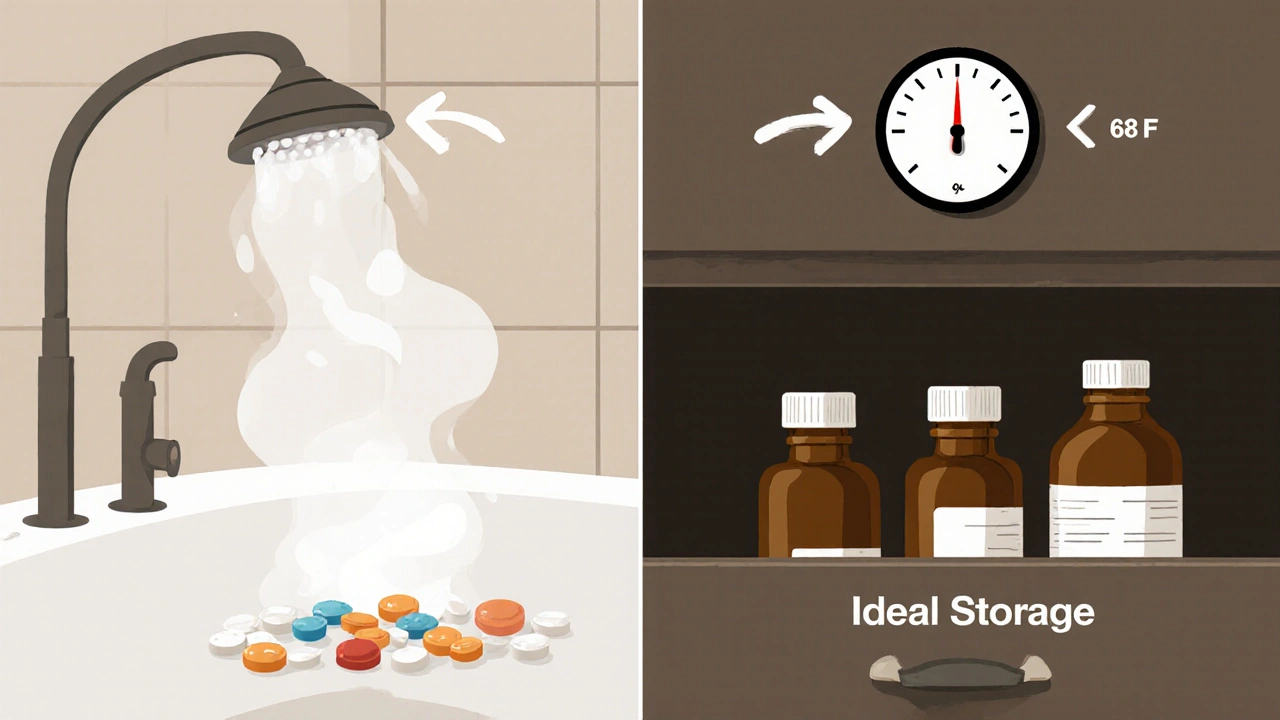
Storage Matters More Than You Think
Your medicine’s lifespan depends more on where you keep it than when it was made.
Storing pills in the bathroom? Bad idea. Humidity from showers speeds up degradation. Heat from windows or radiators? Even worse. The FDA found that medications stored in hot, humid places degrade up to 40% faster.
Best place to store meds? A cool, dark drawer - not the bathroom, not the kitchen counter, not the car glovebox. Keep them in their original bottles with the childproof cap tight. Amber glass bottles protect better than plastic, but even standard bottles are fine if kept out of sunlight.
Pro tip: Check your meds every three months. Look for changes in color, smell, texture, or consistency. If a tablet is cracked, powdery, or smells weird - toss it. If eye drops are cloudy or have particles, throw them out immediately. Liquid medications are the most fragile.
What Happens If You Take an Expired Medicine?
Most of the time, nothing dramatic happens. You might just feel like the medicine isn’t working.
But here are real risks:
- Reduced effectiveness: Your infection doesn’t clear up. Your allergy flares up again. Your blood pressure stays high.
- Toxic breakdown products: Tetracycline is the most documented example - degraded versions can cause kidney damage.
- Contamination: Expired eye drops, nasal sprays, or liquid antibiotics can grow bacteria. One study found 60% of expired eye drops were contaminated within 30 days of expiration.
- Delayed care: You take an expired EpiPen during an allergic reaction, feel slightly better, and delay going to the ER - only to have a life-threatening reaction later.
According to CDC data, 45% of U.S. households still keep expired medications. About 78% of reported adverse events linked to expired drugs involved improper storage.
What Should You Do With Expired Medications?
Don’t flush them unless they’re on the FDA’s official Flush List (like fentanyl patches or oxycodone). Flushing pollutes water supplies.
Best option? Use a drug take-back program. There are over 14,500 authorized collection sites in the U.S. - pharmacies, hospitals, and police stations. You can find one near you via the DEA’s website.
No take-back nearby? Here’s the FDA-approved home method:
- Remove pills from original bottles.
- Mix them with something unappetizing - coffee grounds, cat litter, or dirt.
- Put the mixture in a sealed plastic bag or container.
- Throw it in the trash.
- Scratch out your name and prescription number from the bottle before recycling it.
Never just toss pills in the trash without mixing them. Someone - or a pet - could find them.
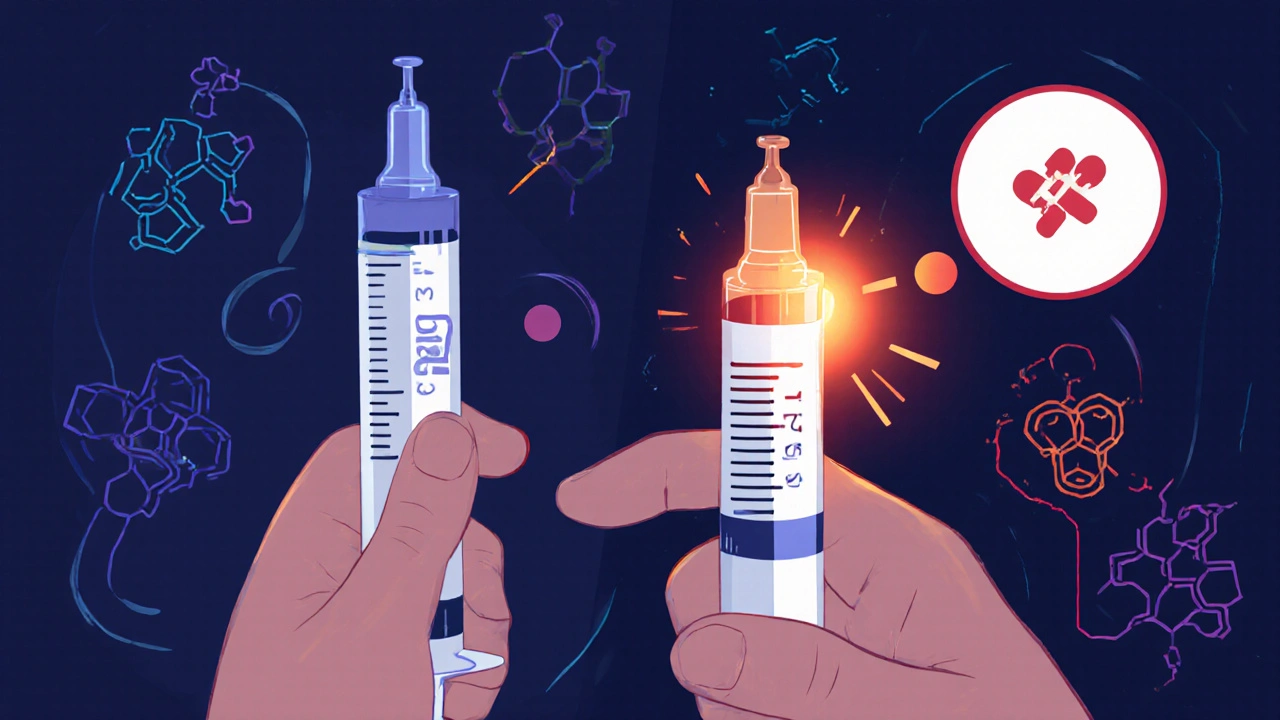
Emergency Situations: What If You Have No Choice?
Let’s say you’re having a severe allergic reaction, and your only EpiPen expired three months ago. Or you’re having chest pain and your nitroglycerin is out of date.
In these cases, experts agree: use the expired medication anyway - then call 911 or go to the ER immediately.
It’s not ideal. It’s not safe. But it’s better than doing nothing. A partially effective EpiPen might still buy you enough time to get help.
Don’t wait. Don’t hope. Act.
Final Advice: When to Replace, When to Keep
Here’s a simple rule to follow:
- Replace immediately: Epinephrine, insulin, nitroglycerin, antibiotics, thyroid meds, blood thinners, seizure meds.
- Can probably wait: Pain relievers (ibuprofen, acetaminophen), antihistamines, antacids, vitamin supplements - if they’re less than a year past expiration and stored well.
- Always replace: Any medicine that looks, smells, or feels different - even if it’s not expired yet.
Keep a small stash of essential meds - like painkillers or allergy pills - but rotate them every 6-12 months. Don’t hoard. Don’t ignore. Check your medicine cabinet like you check your smoke detector: once a quarter.
Medications aren’t like wine - they don’t get better with age. But they don’t always turn deadly overnight, either. The key is knowing the difference between what’s risky and what’s just outdated.
Is it dangerous to take expired painkillers like ibuprofen or acetaminophen?
For most people, taking expired ibuprofen or acetaminophen isn’t dangerous, especially if it’s only a few months past the date and stored in a cool, dry place. Studies show these medications often retain most of their potency for years. However, if the pills are discolored, cracked, or smell odd, don’t take them. And if the pain doesn’t go away after taking them, don’t assume the medicine failed - you might need a different treatment.
Can expired antibiotics make you sick?
Expired antibiotics won’t necessarily make you sick directly, but they can cause serious indirect harm. If they’ve lost potency, they might not fully kill the bacteria, allowing the infection to return or worse - encouraging antibiotic-resistant strains to grow. Tetracycline is a known exception: degraded tetracycline can cause kidney damage. Never use expired antibiotics for a new infection.
What should I do with expired EpiPens or insulin?
Replace them immediately. Don’t wait. Don’t try to stretch their use. Epinephrine and insulin degrade quickly and lose effectiveness - sometimes dramatically - after expiration. In an emergency, if you have no other option, use the expired device while calling for help. But never rely on it as your primary treatment. Always have a fresh one on hand.
Can I still use expired eye drops?
No. Expired eye drops can become contaminated with bacteria or fungi, even if they look fine. Using them can lead to serious eye infections, including corneal ulcers that may cause permanent vision loss. Throw them out after the expiration date - or 28 days after opening, whichever comes first.
How do I safely dispose of expired meds at home?
Remove pills from bottles, mix them with something unappealing like coffee grounds or cat litter, seal them in a plastic bag, and throw them in the trash. Scratch out your name and prescription info on the bottle before recycling it. Only flush medications if they’re on the FDA’s official Flush List - most shouldn’t be flushed.
Are there any medications that get stronger or more effective after expiration?
No. Medications don’t improve with age. They either stay stable, slowly lose potency, or break down into inactive or harmful substances. There is no scientific evidence that any drug becomes more effective after its expiration date.
Why do drug companies set such short expiration dates if meds last longer?
Expiration dates are based on manufacturer testing under ideal conditions, but they’re also influenced by legal liability and marketing. Companies aren’t required to test beyond a few years, and they’re legally responsible only up to the labeled date. Setting shorter dates ensures consistent performance and reduces liability risk. It’s not necessarily about what the drug can do - it’s about what the company can guarantee.
Next Steps: What to Do Today
Don’t wait for an emergency to realize you’re out of date.
- Go to your medicine cabinet right now. Pull out anything expired.
- Separate the high-risk meds (EpiPens, insulin, antibiotics) from the low-risk ones (painkillers, antihistamines).
- Check storage conditions. Is your medicine in the bathroom? Move it.
- Call your pharmacy. Ask if they offer free take-back programs.
- Set a calendar reminder: check your meds every three months.
Medications are tools. Tools wear out. You wouldn’t drive on bald tires because they still "look okay." Don’t take expired pills because they still "look fine." Your health isn’t worth the gamble.

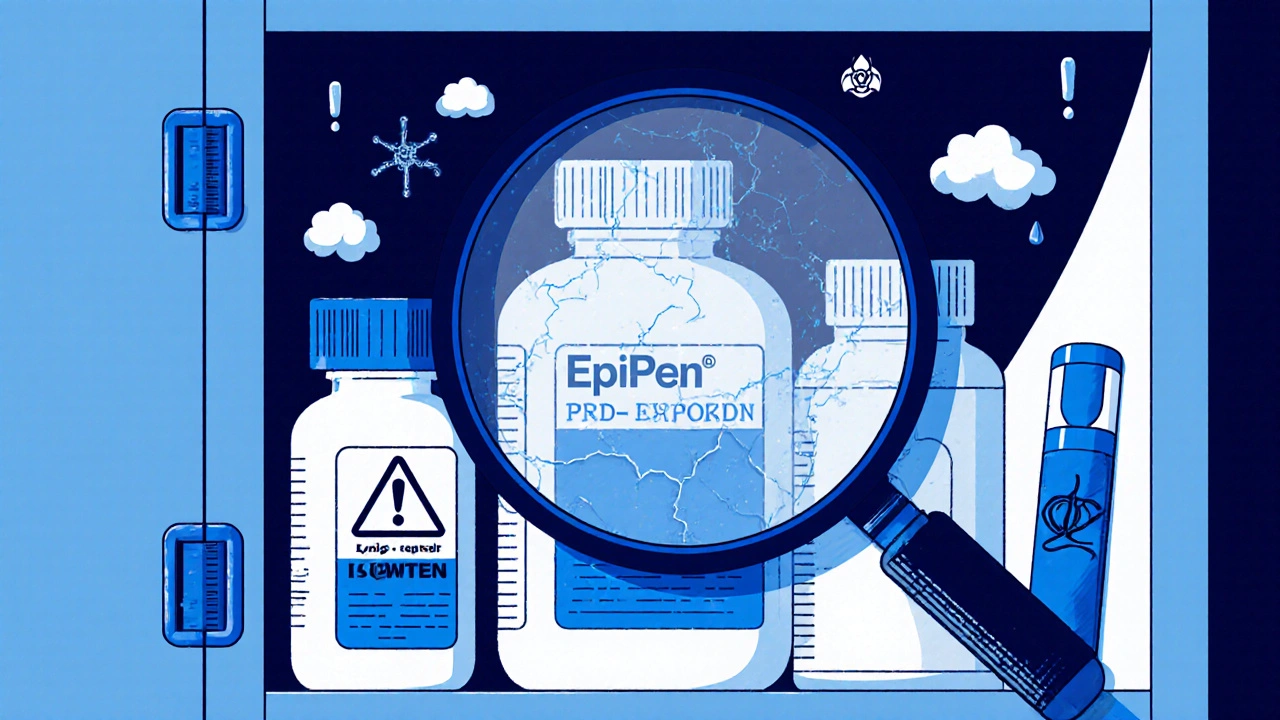

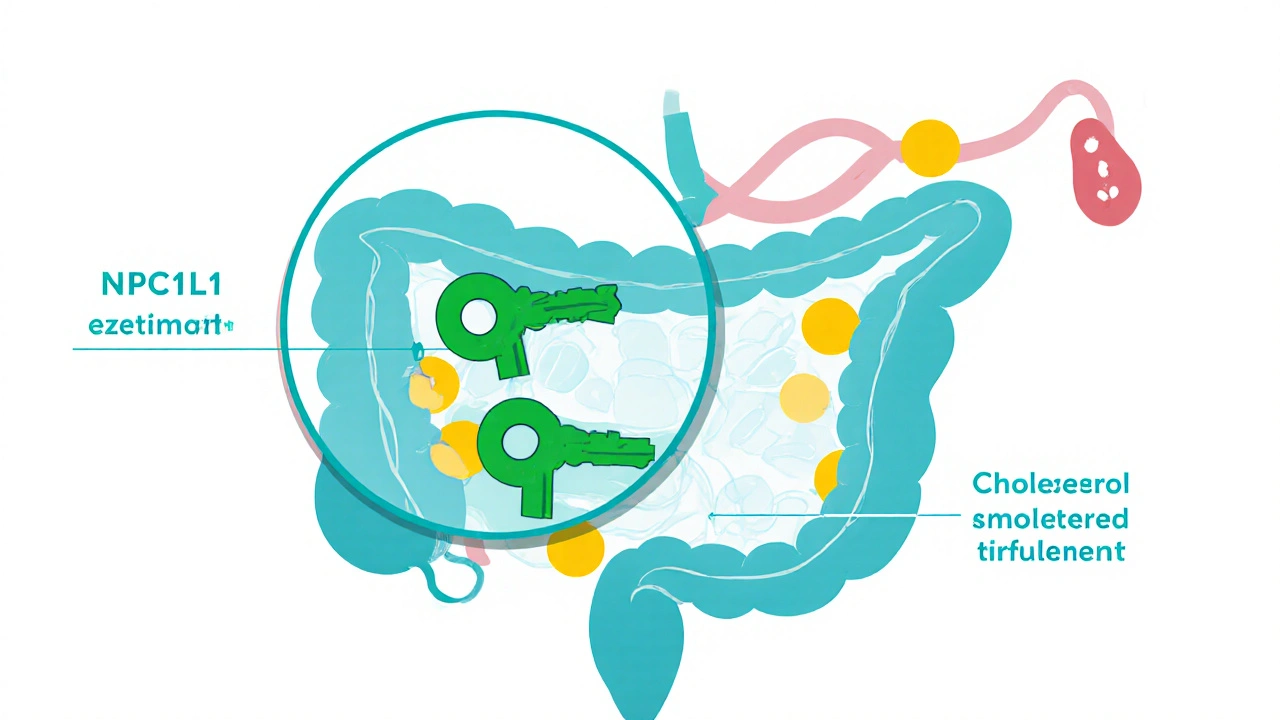
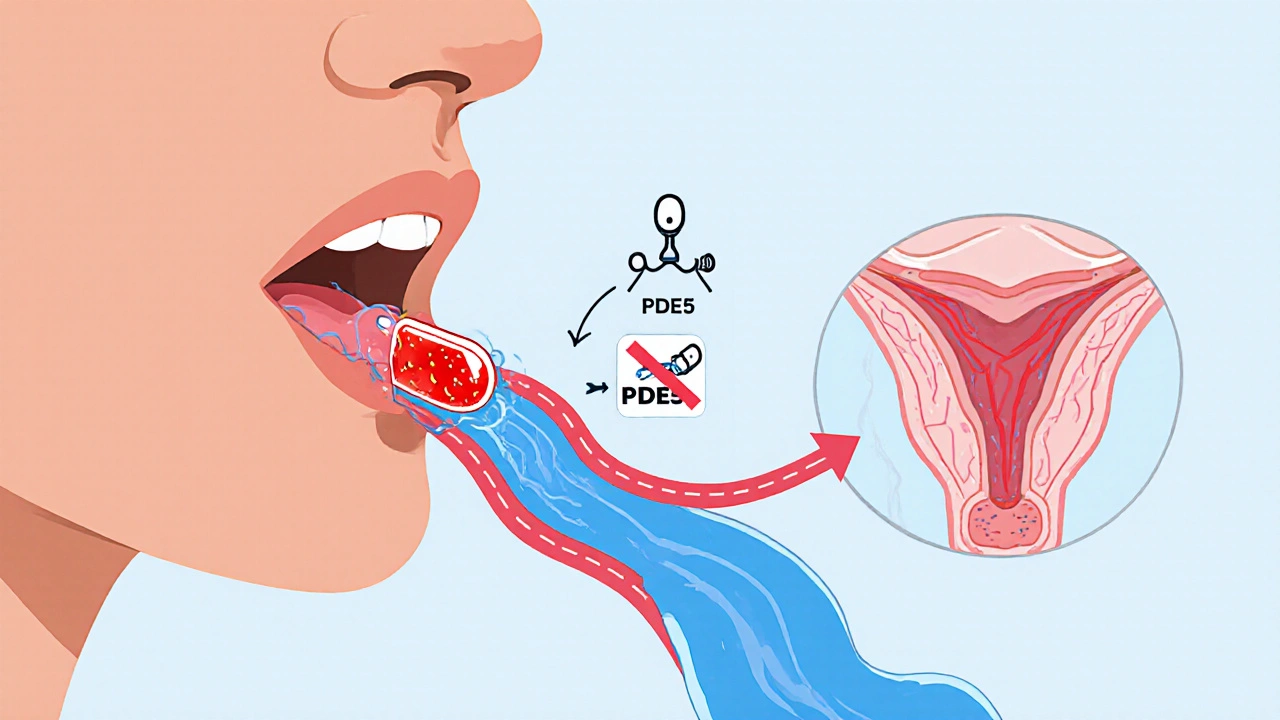

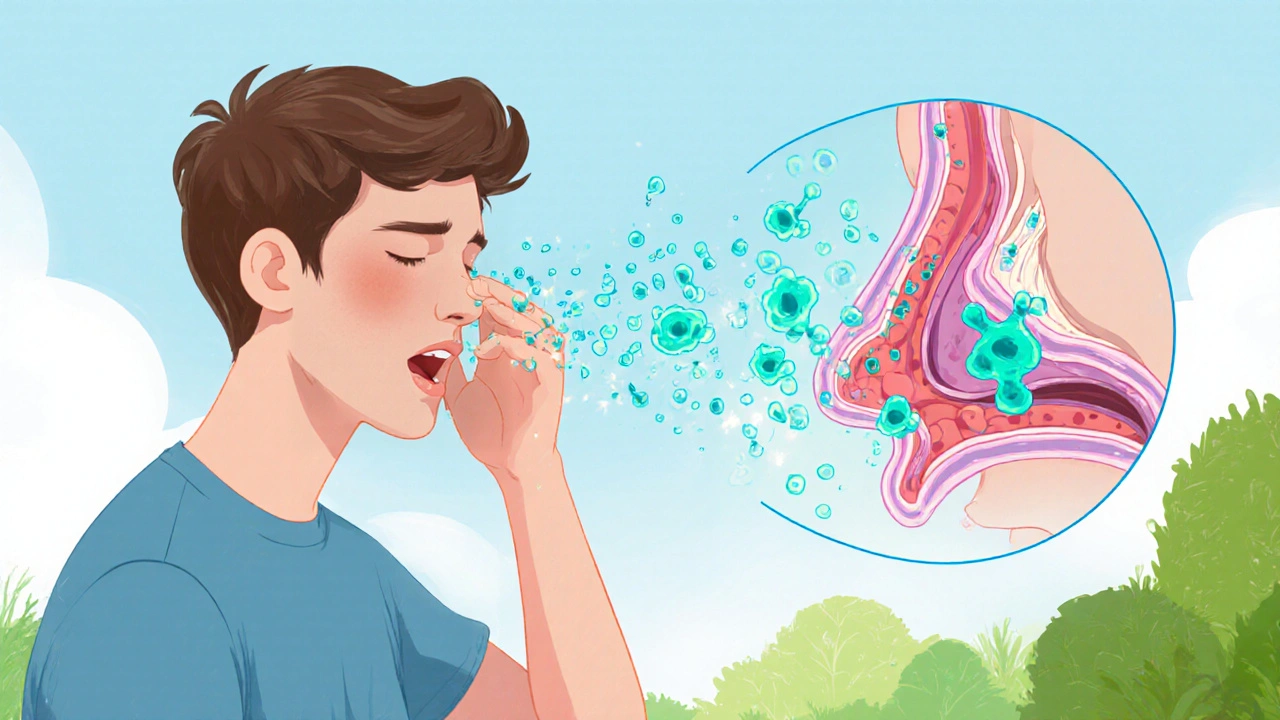

15 Comments